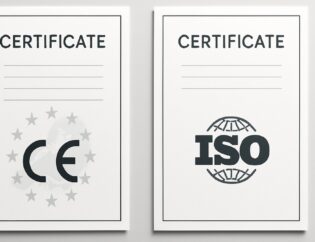
Recent Legal Changes Regarding the CE Mark and Their Effects (2025)
As of 2025, significant changes have come into effect regarding CE certification and the CE mark. These changes bring new obligations for manufacturers and importers, particularly concerning import inspections, product safety, and technical file requirements. Below are the key changes and their impacts that came into force in 2025.
Product Safety and Inspection Communiqué 2025/9
The “CE Marked Products Import Inspection Communiqué (Product Safety and Inspection: 2025/9)", published in the Official Gazette on December 31, 2024, and effective as of January 1, 2025, introduces new regulations.
Key Changes:
- New Product Categories: New product groups have been added to the list of items requiring the CE mark.
- Tighter Import Inspections: CE certification checks during the import process have been made more stringent.
- Production Input Exemption: A new directive has been published regarding the "production input exemption" for certain goods and vehicle parts during import.
CE Certification Validity Periods
From 2025 onward, the validity periods for CE certifications have been differentiated based on product groups:
- For some products, the certification is valid for 5 years.
- For other products, the validity period has been extended to 10 years.
Products with expired certifications will require a new compliance assessment to continue being sold in the market.
New Obligations for Manufacturers and Importers
The new legal regulations have introduced additional responsibilities for both manufacturers and importers:
- Technical File Updates: It is now mandatory to prepare and maintain product technical files according to the latest regulations.
- Declaration of Conformity: A Declaration of Conformity must be provided for each product, prepared in line with the current legislation.
- Labeling and Marking: The CE mark must be visibly displayed on the product and comply with regulatory requirements.
Sectoral Impacts of the Changes
- Importers: Importing companies will face stricter checks to ensure products are CE-marked before they enter the market.
- Manufacturers: Manufacturers will need to manage technical files and declarations of conformity with greater care to avoid compliance issues.
- Supply Chain: The production input exemption could provide cost advantages for certain sectors, particularly those dealing with parts and materials.
General Evaluation
The changes that came into effect in 2025 have introduced more stringent inspections and detailed documentation requirements for CE certification. Therefore, it is crucial for manufacturers and importers to stay up-to-date with the latest legislation and ensure their compliance processes are consistently followed.









